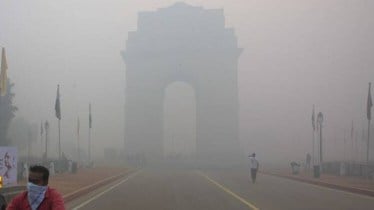A global study has revealed that increasing air pollution is driving the rise in antibiotic resistance which is a major public health challenge. Antibiotics are prescribed to prevent and treat bacterial infections. However, antibiotic resistance occurs when bacteria change in response to the use of these medicines.
Consequently, it becomes difficult to treat the infections caused by resistant bacteria as compared to those treated by non-resistant bacteria.
Published in The Lancet Planetary Health journal, the study revealed that “Particulate matter (PM)2·5 air pollution contains diverse elements of antibiotic resistance that could exacerbate widespread antibiotic resistance and human exposure via inhalation.”
“To our knowledge, this analysis is the first to comprehensively estimate the global associations between PM2·5 and clinical antibiotic resistance via univariate and multivariate analysis. We identified that antibiotic resistance increased with increasing PM2·5. Through future population and air-quality scenarios, we evaluated the burden of antibiotic resistance associated with PM2·5 worldwide for the first time. Our results highlight that controlling air pollution to reduce PM2·5 concentrations might lead to substantial health and economic benefits by reducing antibiotic resistance,” the researchers said.
The study has highlighted the quantum of antibiotic resistance. With every one per cent rise in PM 2.5 pollution, there is an increase in antibiotic resistance between 0.5 and 1.9 per cent, depending on the pathogen, it revealed. The analysis indicates antibiotic resistance resulting from air pollution is linked to an estimated 480,000 premature deaths in 2018. This led to additional economic costs of $395 billion.
According to estimates, Antibiotic resistance is already killing 1.3 million people every year. Although it is well-known that misuse and overuse of antibiotics is the main causal factor of antibiotic resistance, the study has highlighted that the problem is being worsened by rising levels of air pollution.
According to health experts, Long-term exposure to air pollution is associated with chronic conditions such as heart disease, asthma and lung cancer, reducing life expectancy. Meanwhile, short-term exposure to high pollution levels can cause coughing, wheezing and asthma attacks.
The authors of the study emphasised that future research should focus on investigating the underlying mechanism of how air pollution affects antibiotic resistance.
